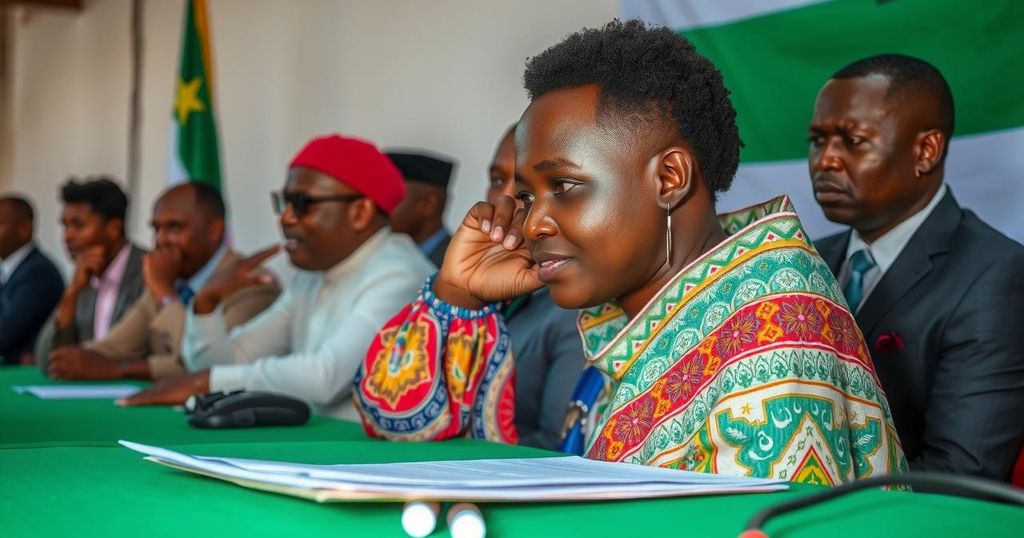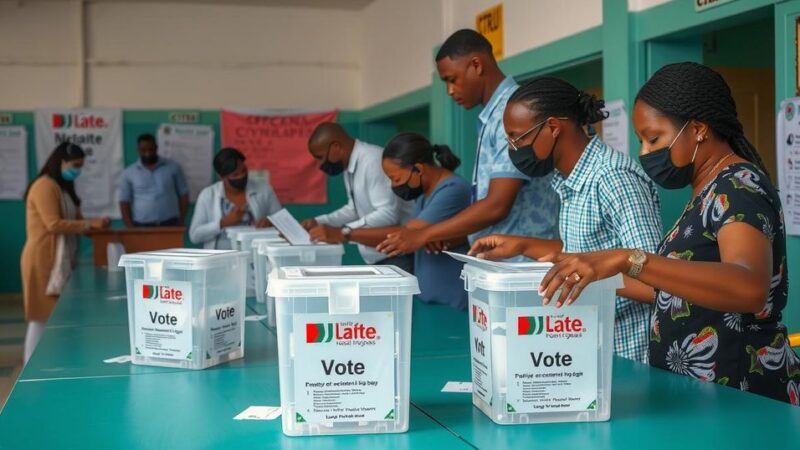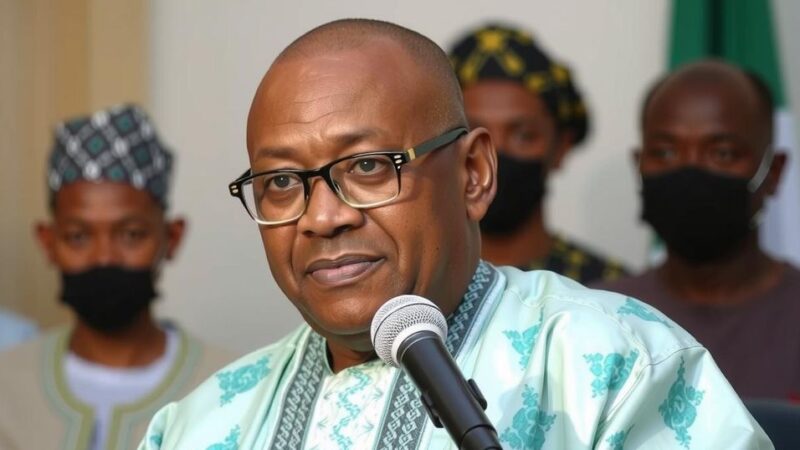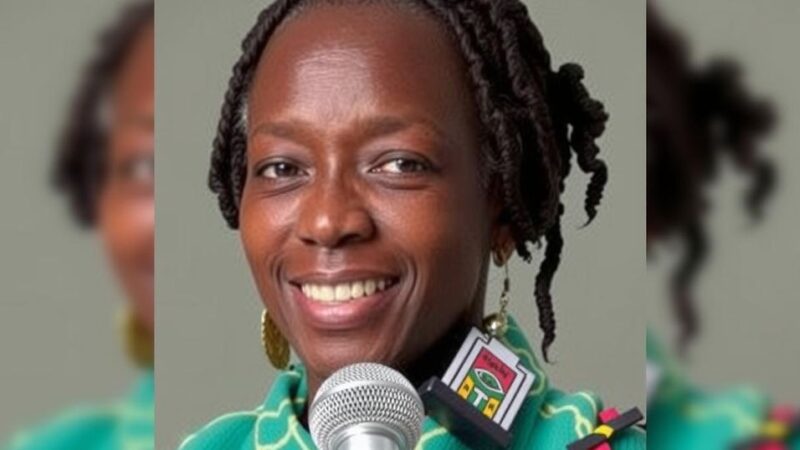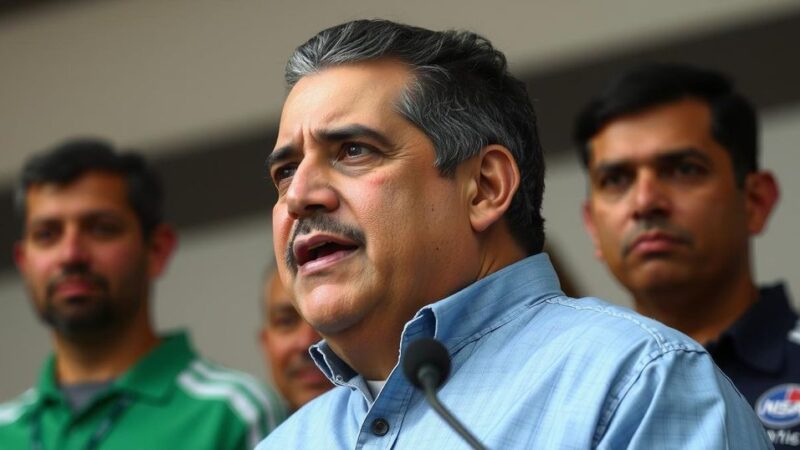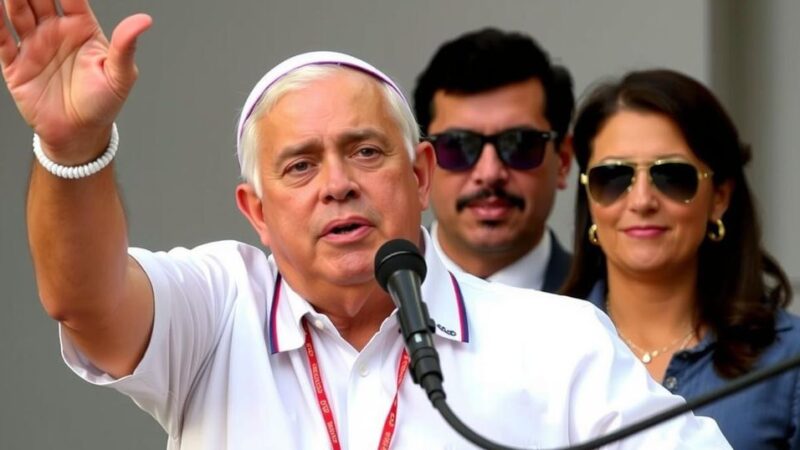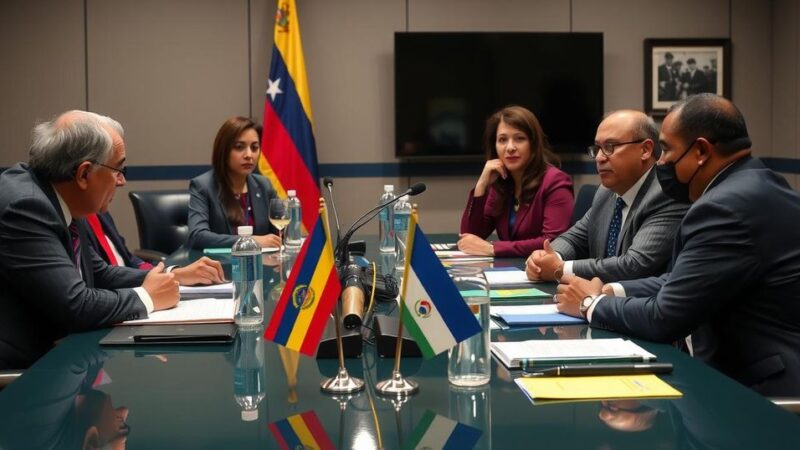Comoros held a parliamentary election that faced boycotts from opposition parties. Concerns over electoral integrity have been voiced, with low turnout expected due to disenchantment with the political process. President Azali Assoumani’s ruling party previously dominated the last election, and he has faced allegations of authoritarian governance.
On Sunday, Comoros conducted a parliamentary election amidst boycott calls from various opposition leaders, who allege that President Azali Assoumani and his ruling party have adopted an increasingly authoritarian approach and raised doubts regarding the electoral integrity. The election will fill 33 legislative seats, with results anticipated next week. Out of an approximate 850,000 population, around 330,000 individuals are registered to participate, although opposition representatives foresee a low voter turnout due to widespread disillusionment with the electoral process.
In the previous parliamentary election of 2020, Assoumani’s Convention for the Renewal of the Comoros party, along with its allies, claimed 20 of the 24 available seats. This election follows Assoumani’s controversial re-election as president last year, which prompted allegations of fraud and subsequent violent protests. Notably, the Juwa Party, led by former President Ahmed Abdallah Sambi, is among the parties boycotting this vote, having also stayed away from the last parliamentary election.
Comoros, an archipelago located off Africa’s east coast, has a history marked by political instability and military coups since its independence from France in 1975. Assoumani, who initially overthrew the president in 1999, has served multiple terms amid accusations of electoral misconduct, including constitutional changes that eliminated term limits. The Africa Center for Strategic Studies has characterized his leadership as increasingly repressive, with a steady decline in electoral competitiveness. Despite the looming threat of Tropical Cyclone Dikeledi, officials confirmed the election would proceed as planned.
The parliamentary elections in Comoros are set against a backdrop of political discontent and allegations of authoritarianism under President Azali Assoumani. Since gaining independence from France, Comoros has experienced numerous coups and political upheavals, contributing to a turbulent democratic process. Assoumani’s tenure has been characterized by a series of contested elections, wherein opposition parties have frequently claimed electoral fraud. The political landscape is further complicated by a history of constitutional changes that have enabled Assoumani to maintain power beyond traditional limits.
In conclusion, the recent parliamentary election in Comoros illustrates the ongoing struggle for democratic governance in the nation. Opposition boycotts highlight the protests against perceived electoral injustices and growing political repression under President Assoumani’s rule. As the results are awaited, the international community and observers will be closely monitoring the election’s validity and the implications for the Comorian political landscape moving forward.
Original Source: www.wral.com

